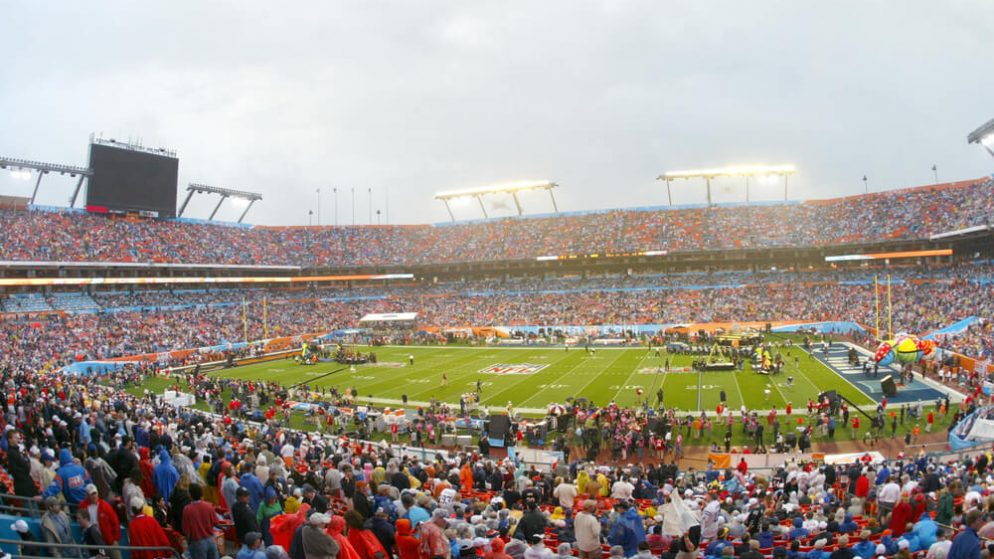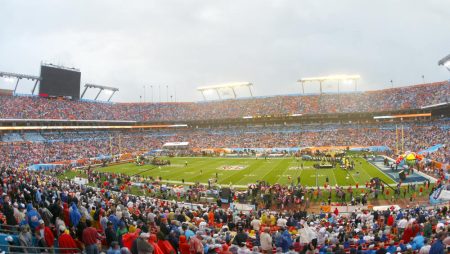

In recent months, speculation has been rife regarding the Chicago Bears’ future home. However, all indications now point to the possibility of the team staying in Chicago, and the developments surrounding the former Arlington Park Race track have sparked significant interest and excitement among fans and analysts alike.
First and foremost, Chicago holds a special place in the hearts of Bears fans worldwide. The city’s rich football history, passionate fan base, and iconic landmarks create a unique atmosphere that embodies the essence of the franchise. Remaining in Chicago not only honors this tradition but also ensures that future generations of Bears fans can continue to embrace their beloved team in their hometown.
Additionally, staying in Chicago offers numerous logistical advantages for the Bears organization. Proximity to downtown Chicago provides easy access to transportation, accommodations, and entertainment options, enhancing the overall gameday experience for fans and visitors.
Plus, maintaining a presence in the city strengthens the Bears’ ties to local communities and fosters ongoing partnerships with businesses and organizations. By staying in Chicago, the Bears remain embedded within the local community, allowing them to actively engage with fans, residents, and community organizations.
Through outreach programs, charitable initiatives, and events, the team can make a positive impact and build stronger relationships with the people who support them. The Bears’ presence in Chicago contributes to the city’s economy by attracting visitors, generating revenue from ticket sales, merchandise, and concessions, and supporting local businesses.
The ongoing demolition work at the former Arlington Park Race track site represents a significant development in the Bears’ potential relocation plans. As demolition crews continue to clear the site, the landscape is being transformed, paving the way for new possibilities.
While the specifics of any potential stadium project remain uncertain, the demolition process signals progress and momentum toward a potential future home for the Bears. The former Arlington Park site offers a blank canvas for the Bears to envision and create a state-of-the-art stadium and entertainment complex.
With ample space and strategic location, the site presents opportunities for innovative design, enhanced fan amenities, and integrated community engagement initiatives. By leveraging this prime location, the Bears have the potential to redefine the gameday experience and establish a new legacy in the heart of Chicagoland.
What we cover
Chicago Bears can get a break on property tax valuation for former Arlington Park but are not eligible for a cut on tax rate
Speaking of Arlington Park, a recent ruling suggests that while the Chicago Bears would receive a break on the property tax valuation for the former Arlington Park site, they wouldn’t receive a cut on the tax rate itself. This indicates that although the assessed value of the property may be reduced, the actual tax rate applied to the property would remain unchanged.
With a lower assessed value, the Bears would likely pay less in property taxes annually, which could translate to significant cost savings for the team. This financial benefit could be particularly advantageous as the Bears explore potential developments or renovations at the site, allowing them to allocate more resources to their projects or other areas of operation.
The ruling by the board stipulates that the former Arlington International Racecourse property should not be classified as vacant for the year 2023. This decision was made because the grandstand was not fully demolished until December of that year. As a result, the property will be assessed as a commercial property at 25% of its market value, rather than the 10% rate for vacant land that the Bears had hoped for.
The outcome of the valuation is approximately 45% higher than the $95 million negotiated last year for the property with former owner Churchill Downs Inc. Under that settlement, local schools received a tax bill of $8 million. With the new valuation, it’s anticipated that the tax bill could increase to around $12 million.
The decision is not yet final, but Commissioner Samantha Steele shared the preliminary ruling, which she indicated had tentative agreement from the other two commissioners. The official ruling was expected by the end of February. Previous reports suggesting that the board had rejected the Bears’ request for a reduced valuation were premature and possibly aimed at prompting a settlement.
This decision comes as the Bears contemplate leaving their century-old home at Soldier Field. The proposed ruling heightens the likelihood of the Bears constructing a $5 billion enclosed stadium, along with an entertainment and housing complex, on the Arlington Heights site. However, discussions with Chicago for a new stadium persist, and the team has received offers for alternative suburban locations.
The Bears and school officials refrained from commenting on the proposed ruling. However, if the team finds the decision unfavorable, they have the option to appeal to the Illinois Property Tax Appeal Board or file a lawsuit in Cook County courts. It’s worth noting that either course of action could result in a prolonged legal process.
The Board of Review echoed the team’s concern regarding the assessor’s approach of “sales chasing,” which involves using the $197 million purchase price paid by the Bears in 2023 to determine the property’s valuation. While sales chasing is prohibited by the Illinois Constitution, court rulings in other cases have indicated that the sales price can be considered as the best indicator of fair market value.
The team attempted to negotiate a settlement with Arlington Heights-based Township High School District 214, Palatine-based Township High School District 211, and Palatine Community Consolidated School District 15, which receive the majority of the property tax revenue from the racetrack site. However, due to a significant discrepancy of $100 million between the team’s and the schools’ appraisals of the property, these negotiations have failed to resolve.
The stakes are high for the Bears, who are considering options for a new stadium in Chicago or elsewhere due to the outcome of this decision. However, school officials caution that freezing property taxes could keep the site’s valuation low for years, potentially burdening other taxpayers. The reassessment by Cook County Assessor Fritz Kaegi’s office, which increased the valuation of the site to match the team’s purchase price, initiated this complex process.
Final Thoughts
As the Chicago Bears navigate the complex landscape of potential relocation and property tax appeals, the future of the franchise hangs in the balance. The prospect of staying in Chicago, coupled with developments at the former Arlington Park site, presents both opportunities and challenges for the team.
While the Bears weigh their options for a new stadium, including the possibility of a state-of-the-art facility in Arlington Heights, ongoing negotiations and legal proceedings underscore the significance of these decisions. As fans eagerly await updates on the Bears’ future home, one thing remains certain: the team’s legacy and impact extend far beyond the gridiron.






